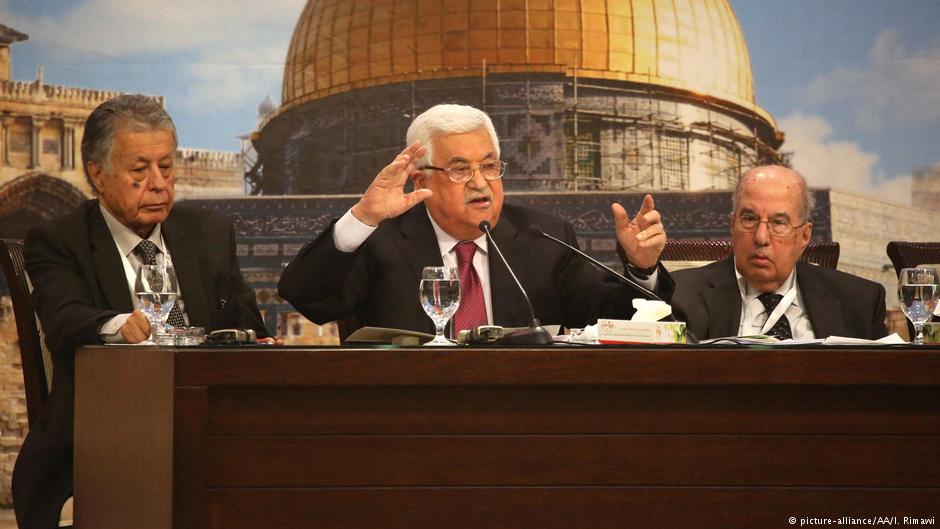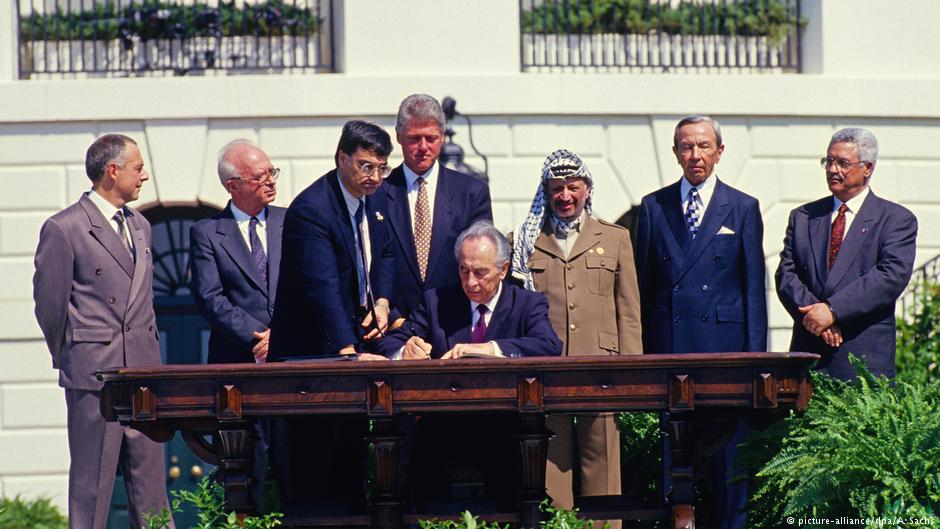No excuse for anti-Semitism

Over the last year, Mahmoud Abbas has felt increasingly betrayed by the international community and is visibly frustrated by the failure of his political agenda. In three recent keynote speeches – to the National Council Speech on 30 April, the Executive Committee and Fatah Central Committee on 19 March, and in another to the Central Council – he spoke at length about the history of Zionism, immigration to Palestine and the establishment of the state of Israel on the ruins of the Palestinian people.
Abbas, who has a Ph.D. in the history of Zionism from Russia, would seem either to be pursuing his long-standing ambition of being a lecturer, or maybe merely seeking to fill the time allotted to him in the meeting programmes. Indeed, rather than pressing issues related to current events –Trumpʹs plans, national reconciliation, Palestinian strategy with regard to the deadlocked peace process and the apparent end of the two-state solution – all three speeches were characterised by a 70% focus on history.
The President of the Palestinian Authority, who has failed to meet the political agenda upon which he was elected in 2005, is now firing off verbal salvos in all directions. In March, he called the U.S. ambassador to Israel a "son of a dog" in Tel Aviv. He has also accused Hamas of not wanting national unity and of sanctioning his people by cutting social services and salaries that keep Gazans alive amid Israelʹs siege.
Legitimacy on the wane
This pronounced change in tone is a sign of Abbasʹ frustration, hopelessness and failure, perceiving himself to have been betrayed by all international actors, including his Arab allies Egypt, Jordan and Saudi Arabia. Furthermore, he is facing a legitimacy dilemma.

Abbas has now been president of the PLO and the PA for more than 13 years without elections. The PLO and its National Council are represented mainly by Fatah, which is riven by divisions between its activists and the executive. Hamas, Islamic Jihad and the PFLP have all boycotted the current Palestinian National Council, which is considered by Palestinians around the world, refugees and non-refugees alike, as the parliament of the PLO.
The last time the PNC convened was in 1996, when Arafat changed the National Constitution during former President Clintonʹs visit to Gaza. Since the death of Arafat, however, the legitimacy of PNC members and the legitimacy of the president has waned.At more than eighty-two, Abbas is trying to show the Palestinians that he is standing up to Trump, Israel and their Arab allies, yet he is employing the wrong tactics. He has failed. Yet now, at a time when the challenges facing the Palestinian people could scarcely be greater, he is also turning his success in securing European support into failure by lecturing on an area of history in which he is not qualified and which it is not his business to examine.
Palestinians do not deny the Holocaust, they react with empathy. As one member of the Palestinian National Council wrote, "The Palestinians are the victims of the victims. The Nakba of 1948 is also a Holocaust for us. However, we condemn all forms of racism. Abbasʹs remarks are basically a historical narrative that was shared by Jewish thinkers and not by Abbas himself. Abbas and the Palestinians are not – and will not be – Holocaust deniers."
The fact, however, that both the Holocaust and the Palestinian Nakba occurred within the space of a few years during the 1940s, does throw up problems for Palestinians looking to come to terms with both. After all, the Holocaust has consistently been presented to the Palestinians through a Zionist filter, creating a direct link being the aftermath of the Shoah and the expulsion of Palestineʹs indigenous population.
Countering anti-Semitic discourse
Abbasʹ remarks may have focussed on the history of the Jews in Europe, but Palestinians and Muslims also need to recognise that the long-established and traditionalist Wahhabist school of Islam advocates against Jews in their textbooks. Wahhabist publications that do not differentiate between Jew, Israeli and Zionism continue to teach and implant confusion among young Muslims.
A typical manifestation were the chants against Jews that were heard in Berlin in early 2018. Although criticising Israel and its policies in the Middle East is not anti-Semitic, many Muslims, especially the young, still use Jews, Zionists and Israeli interchangeably. Educational curricula that differentiate between Jews, Israeli and Zionism are needed, as are those that teach the Holocaust as a human rights catastrophe, alongside other human rights catastrophes. Indoctrination or the justification of present or future human rights abuses can have no place in the classroom or – President Abbas – on the political stage.
The Palestinian people condemn ethnic cleansing, human rights atrocities and racism, whatever the origin.
Abdalhadi Alijla
© Qantara.de 2018
Abdalhadi Alijla is a Palestinian-Swedish academic and researcher. He is the executive director of the Institute of Middle Eastern Studies Canada (IMESC).
